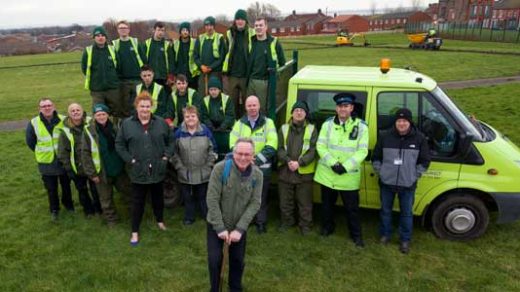Sixth former designs award-winning app to promote better mental health

Sixth former Richard Turay from London received a Gold CREST Award for his project of designing an app which explores the link between nutrition and mental health.
Richard carried out the project whilst completing an In2Science placement at the Sainsbury Wellcome Centre, part of University College London, during his first year of sixth form.
Working with neuroscientists at the centre, Richard learnt more about the nervous system and the key relationship between diet and mood.
Building on this knowledge, he then conducted a survey to discover how effective an app which enables people to better understand and manage the link between diet and depression could be.
As part of the survey, he also considered the different factors impacting men’s and women’s mental health, including societal expectations of men to be less emotional.
Following the results of his survey, Richard was determined to design an app that would help anyone who may be struggling with mental health issues with the means to confidently take the steps to feel better.
After analysing his results, Richard developed a prototype of the app in Figma, learning new presentation and design skills in the process to display the project, for which he earned a Gold CREST Award, the highest CREST achievement.
CREST Awards is a nationally recognised science, technology, engineering and maths (STEM) education scheme that helps to empower children and young people to engage with STEM subjects by acting like real-life scientists as they undertake hands-on projects.
Secondary-level CREST projects empower students to design and lead their own investigations, exploring topics of interest to them.
For Richard, the scheme allowed him to explore different strands of STEM and design a project that reflected his own interest in fitness and nutrition, as well as mental health, to demonstrate new links. Gold CREST Award projects typically take around 70 hours to complete, requiring students to conduct in-depth research, problem-solving and analysis to meet the criteria.
Reflecting on his project, Richard said: “I had the idea of nutrition because of my personal interest in fitness and the impact of food on your body.
“I was also drawn to mental health as a topic because I’ve seen a lot of people go through a hard time with mental health, like friends, and that’s something that’s sensitive to me so I decided to think about it… I knew what you eat has an impact on your mood so I was trying to make that connection.”
Richard added that he would certainly recommend CREST Awards because it allows people to take time to learn new things and learn new skills.
Estelle Whewell, CREST manager at the British Science Association, said: “One of the most exciting things about the CREST Awards, particularly at the Gold level, is seeing the wide variety of projects which are born from each young person’s individual interest.
“Richard’s project combined his interest in both nutrition and mental health, and led to him designing an app that could have real benefits for people struggling with depression.
“His project is a stellar example of why it is so important to give young people the space to pursue their own interests in the world of science and the chance to gain new skills and knowledge.
“Empowering young people to act like real-life scientists not only equips them with experiences and transferable skills that will benefit them later in life but also allow them to work on projects that could have a positive impact on society.”
Find out more about Richard’s project here.







